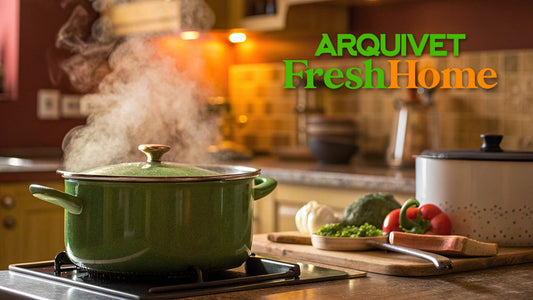
What is the best food for dogs with digestive problems?
Occasionally, dogs may suffer from digestive or gastrointestinal problems that can affect their health in various ways. Some of the most common symptoms in dogs with problems, along with vomiting and diarrhea, are excessive flatulence, loss of appetite, constipation, abdominal pain, dehydration, the appearance of blood or mucus in the stool, and difficulty eliminating. Arquivet We care a lot about the health of pets, so in this article we want to talk to you about What should dog food be like for dogs with digestive problems? and what we should keep in mind about their diet, among other things. Read on to learn more about gastrointestinal dog food!
Ingredients in dog food for dogs with digestive problems
There are many reasons why a dog may be suffering from digestive problems, although the most common are the following:
- Ingestion of foods that are prohibited or not recommended for dogs.
- Ingestion of spoiled or toxic food.
- Presence of infectious agents, such as bacteria, viruses, parasites and fungi.
- Abrupt changes in diet.
Dog food for dogs with digestive problems or food for dogs with diarrhea should contain the ingredients explained below. It's also advisable to distribute these ingredients in the right proportions so they don't cause further harm and prevent any nutritional deficiencies over time. Let's take a closer look!
Digestive food for dogs: Proteins
Proteins They must be of quality, preferably of animal originThis way, they will be easier to digest, as is the case with chicken or salmon, but also duck and lamb. It is also possible to find feeds that include specific types of proteins, such as plasma proteins. These serve to maintain the structure of the digestive tract and increase food digestibility.
Digestive food for dogs: Fiber
The fiber helps improve digestion of dogs, in addition to providing consistency to the stool. Dog food for dogs with diarrhea should contain a sufficient amount of fiber from vegetables to help the pet recover from the illness. One of the advantages of vegetables is that they contain vitamins and minerals suitable for meeting the pet's nutritional needs.
Digestive food for dogs: Prebiotics and probiotics
It is another of the ingredients that digestive foods for dogs should have. These help to improve intestinal flora thus promoting the assimilation of nutrients and intestinal transit.
Digestive food for dogs: Fatty acids
These are beneficial for the digestive tract. They are usually obtained from the oils of fish, such as salmon, or flax seeds.
Digestive dog food: Easy-to-digest carbohydrates
Not all carbohydrates are recommended if your dog has digestive problems. You should only choose those that are easy to digest, such as peas, potatoes, oats and brown riceIn some cases, it is best to opt for feed of the type grain free that lack cereals.
Other things to consider when purchasing gastrointestinal dog food
As we mentioned at the beginning, there are several reasons that can contribute to the development of digestive or gastrointestinal problems in dogs. However, the symptoms of these problems can lead to various diseases, such as gastritis, gastroenteritis, or colitis. Therefore, it is essential to pay attention to how our pet reacts to know exactly what it needs. If there is no improvement, it is advisable to seek the help of a veterinarian who can perform a specific diagnosis for your pet. Regardless, we recommend that you consider the following tips regarding food for dogs with digestive problems.
Natural ingredients
If your dog is suffering from gastrointestinal problems, it's time to finally give him natural foods and avoid those foods that contain a lot of chemicals. Look at the product labels and make sure the ingredients are naturalLikewise, we recommend that the meats be fresh.
Foods to avoid
There are a number of foods we should definitely avoid because they're very heavy and can upset our pet. These are:
- Fats: Choose low-fat foods, as these are generally poorly absorbed and cause very heavy digestion.
- Milk and dairy productsSome dogs can easily digest these foods, although it is best to avoid them, as for most they tend to be quite heavy and not easily digested.
- The fruitFruit should also be avoided if your dog has digestive problems. This is because they contain large amounts of sugar, which is difficult to digest.
- Gluten: Gluten should be eliminated as a preventative measure as it is one of the main causes of digestive disorders.
Limited ingredient feeds
Limited ingredient feeds are a type of feed for dogs with digestive problems that are characterized by Their recipes contain very few ingredients, and they're also very easy to digest. They can be used occasionally until the dog recovers, or in cases of intolerance. It's one of the most recommended options for dogs with food sensitivities.
Find out what the pet's specific problem is
The most important thing, always, is to find out what the pet's specific problem is. There are different diseases that affect dogs with digestive problems—as we've seen—so a professional must determine the cause. Based on this, the dog's breed, age, and sex will recommend one type of food or another. From this point, we can ask specialists which of our food options for dogs with digestive problems is most recommended.


